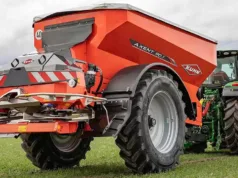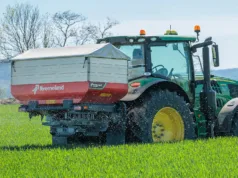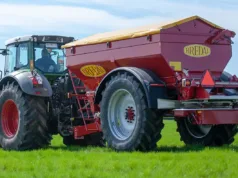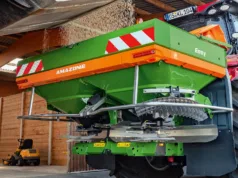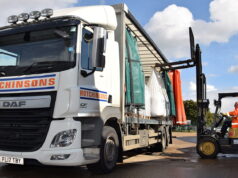With nitrogen fertiliser prices well above £300/t it is more important than ever to ensure this precious input is applied as accurately and evenly as possible to ensure the best returns and to protect the environment.
SCS Spreader & Sprayer Testing provides a nationwide service with 25 engineers on the road. It is anticipating strong demand this season, not only due to the high prices, but also from farmers looking to improve accuracy to comply with strict Nitrate Vulnerable Zone (NVZ) regulations.
“While a rate calibration will show you how much you applying, the only way to ensure fertiliser is applied accurately and evenly is to check the spreader with a full-width tray test. It is also important to test each product that will be used and at the anticipated application rate and forward speeds,” SCS managing director Rob Foxall said.
“A full spreader service and tray test for two products costs just £200 and it is the most cost-effective way of ensuring the material is being applied as evenly as possible across the full spreading width. The cost is quickly recouped in only a few hectares.”
Inaccurate spread patterns will cause losses in both yield and quality. A tray test assesses the spread pattern and shows how evenly the material is distributed across the working width. The results are recorded as a Coefficient of Variation (CoV) percentage, with a 5-10 per cent CoV considered a good pattern, achievable in the field.
Independent calculations based on 15 field trials with ammonium nitrate costing £350/t and at grain price of £190/t showed that at a CoV of 10 per cent resulted in little loss, but a 20 per cent CoV, which is commonly found by testers on farm, led to losses of £22.19/ha and up to £49.93/ha could result from badly worn and incorrectly set machine with a 30 per cent CoV.
“It’s also important to remember that any gains made from using variable-rate applications could all be wiped out by an incorrectly set spreader,” Mr Foxall added. “The first step on the route to precision farming has to be tray testing the applicator. Similarly any savings made by ‘playing the market’ and buying lower quality imported materials can be all lost through inaccurate application.
“The spreading characteristics of materials vary widely and it’s vital these products are tray tested.”
A further benefit of tray testing is that the comprehensive report provides irrefutable record keeping evidence of the accuracy of application that is a requirement for those in NVZs, and is becoming increasingly requested by assurance schemes.
An SCS test includes:
- Fertiliser analysis: As well as training from leading spreader manufacturers, SCS works closely with fertiliser manufacturers and importers, which provides them with vast knowledge current market products.
- Thorough machine check-over and assessment. Engineers will fit new parts as required (at extra cost) to ensure the spreader is working properly.
- Tray test: This assesses the spread pattern, SCS engineers adjust the machine to ensure it provides a CoV of less than 10 per cent.
- Record keeping: After the test, SCS will produces a comprehensive report showing the actual CoV for machine and fertiliser combination.
For more information visit: www.spreadcheck.com.


